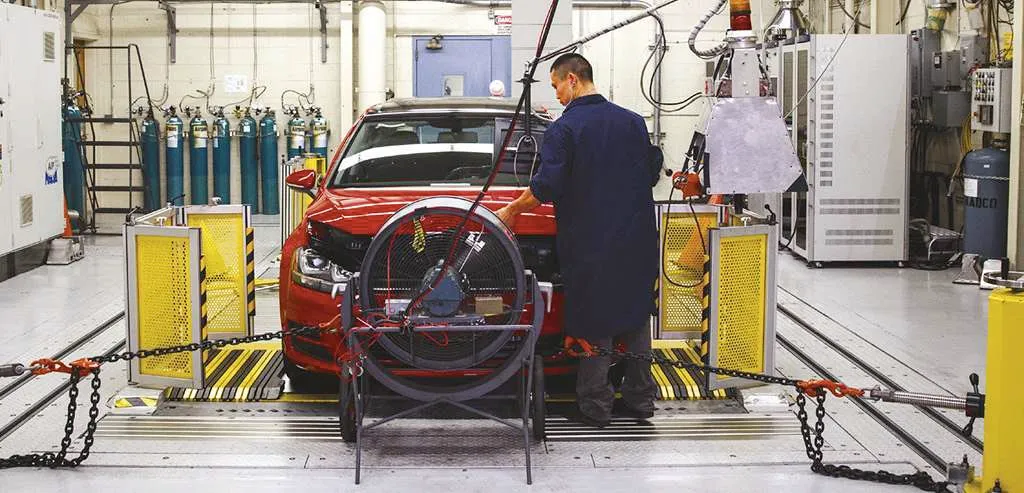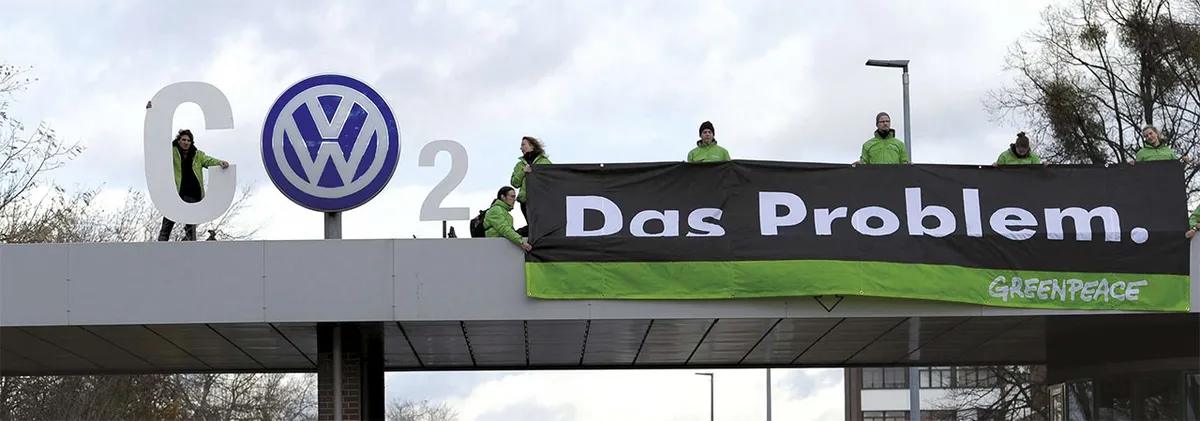This extract first appeared inissue 290ofBBC Focusmagazine - to get full features delivered to your doorsubscribe here.
Just in case you’ve been living under a rock for the last few months: the entire automotive industry is in the middle ofDieselgate, its worst environmental scandal in decades. Volkswagen has been caught systematicallycheating on emissions tests, while many more car manufacturers have faced similar accusations, with tens of millions of vehicles affected all over the world. But how dangerous are the pollutants involved? Who’s to blame for ineffective testing? And how much can we trust companies to tell us the truth about the cars that we drive?
The whole mess began on 18 September 2015, when the United States Environmental Protection Agency (EPA) publicly accusedVolkswagenof using carefully-designed software to circumvent diesel emissions testing.
“A sophisticated software algorithm on certain Volkswagen vehicles detects when the car is undergoing official emissions testing, and turns full emissions controls on only during the test,” EPA wrote in a damning report. “This results in cars that meet emissions standards in the laboratory or testing station, but during normal operation emit nitrogen oxides, or NOx, at up to 40 times the standard.”
What a stinker
Traditional emissions tests work by putting cars onto a stationary test rig in controlled laboratory conditions, where speed, engine operation, air pressure and even the position of the steering wheel are defined in advance. Volkswagen’s device supposedly monitored for those conditions and when it detected them it would ramp up its emissions-scrubbing system into overdrive to comply with the test’s requirements. When the test was over, the cars would go back to belching out air pollution in vast quantities again.
The requirements for NOx emissions differ around the world, and depend upon the type and age of the vehicle. In Europe, the newest diesel cars are subject to theEuro 6 emissions standard, which was introduced in 2015 and allows just 80 milligrams of NOx to be emitted per kilometre driven. That’s substantially less than the previous Euro 5 standard, which permitted 180 milligrams per kilometre.
Unfortunately, the laws of physics mean that the temperatures and pressures at which a diesel engine runs most efficiently and delivers the most energy also happens to be the conditions that convert the maximum amount of oxygen and nitrogen into NOx. That means that building one is a trade-off between power, fuel efficiency and clean emissions. To sell more of their cars, manufacturers like to boost the first two, but to be allowed to sell cars they have to allow for the third.
Clean it up
Catalytic converters only work in petrol cars, but there are similar technologies available for diesel. Mercedes-Benz cars inject a fluid called urea that converts NOx into less harmful substances, but the tank of fluid has to be periodically refilled. Volkswagen instead invested in a sponge-like technology that soaks up the polluting gases – details on how it works are sketchy, but it’s thought that when activated this filter lowers engine performance. That, it seems, may be why the company decided to cheat.

It is, however, relatively simple to fix the cars. A software update is all that’s needed, which reactivates the filter. Volkswagen says that about 11 million cars worldwide, including 8.5 million in Europe, are affected and must be recalled to apply the fix. Making things right is costing the company about £4.8bn, and that’s before fines from regulators and legal action are taken into account. Unsurprisingly, the company’s shares have fallen by almost a third since the news broke.
The news that Volkswagen had been cheating in the tests didn’t come as a surprise to Dr James Tate, a lecturer at the Institute for Transport Studies at the University of Leeds. For years, he’s been collecting data on the emissions of every car on the road. “Since 2011 we’ve been publishing results showing that diesel cars in real driving were emitting high amounts of nitrogen oxides,” he says.
His methodology is dramatically different to the official tests. It involves setting up a ‘sensing beam’ across a major road. “When vehicles drive through it, it makes a measurement of each individual vehicle,” he explains. “Then we record the number plate of the vehicle, the vehicle’s speed and acceleration, and we cross-reference the number plate to the vehicle registration database in the UK.”
By the end of 2015, he’d collected data on as many as 70,000 individual cars, allowing him to generate statistically-rigorous averages of real-world emissions data on all of the most popular models of car out there. His results show that it’s not just Volkswagen failing to meet the emissions standards under real-world conditions. “Basically, you see that all manufacturers are at a staggeringly similar level. Very similar,” he says. “It’s very easy to collect an awful lot of driving information. The [European] test is hideously out of date, and ineffective.”
Choking problem
Prof Håkan Pleijel at the University of Gothenburg is a specialist in the effects of air pollution on vegetation. He agrees that the test needs revamping. “These test cycles don’t really correspond to the way the engine would work when it’s out driving in the city,” he says. “There is space for improvement in terms of using more realistic test cycles or testing the cars actually driving in ordinary traffic.”

The obvious result of this flawed testing methodology means that there’s far more pollution being emitted than we realise. “NOx levels have declined to some extent in Europe over the last few decades,” says Pleijel. “But in some cases the decline does not match the expected emission reductions. It would be expected that the concentrations would have gone down a bit further.”
That’s the reason why many European cities are failing to meet air quality standards. When the European Environment Agency (EEA) last published data in 2014, more than 95 per cent of the urban population was exposed to unsafe levels of certain pollutants. “That leads to high costs,” explained Hans Bruyninckx, EEA’s Executive Director, at the time. “For our natural systems, our economy, the productivity of Europe’s workforce, and most seriously, the general health of Europeans.”
While researchers have known for several years that emissions laws weren’t resulting in the kinds of drops that should be expected, VW’s admission energised the public debate over air pollution, with far greater public scrutiny on vehicle emissions. “We’ve had 10 times more interest since VW have owned up to being fraudulent,” says Tate.
But will Dieselgate translate into long-term change, and perhaps even the end of diesel as a fuel, or will we be back to business as usual within a year? “There will be some small effect but probably not a big one,” says Tate. “The thing that could make a big difference is what city authorities can do. The motor industry, whilst it has the lobbying power to influence the European Commission, has it got the lobbying power to go around all the major cities?”
Pleijel is similarly pessimistic, and adds that there could be unanticipated consequences if people lose trust in environmental data. “This is very important, because it could have side effects outside VW and the associated trademarks,” he says. “Customers may become reluctant to pay extra for the environment, because they don’t want to be cheated.”
For VW, the priority is getting trust back after the emissions scandal. “Volkswagen must put up a convincing performance in every respect over the coming years – with customers, dealers, investors and authorities,” VW’s Paul Buckett tells us. “That is the only way we can win back trust. It will be a long, difficult road. We do not underestimate the magnitude of this challenge.”
Follow Science Focus onTwitter,Facebook, Instagramand Flipboard

